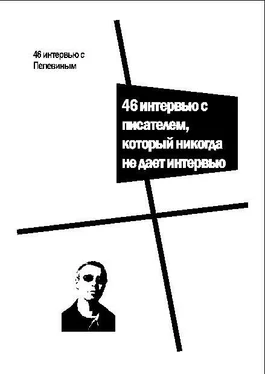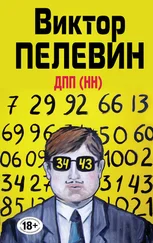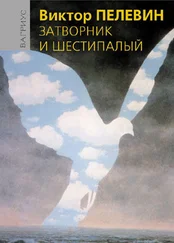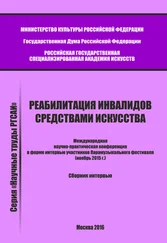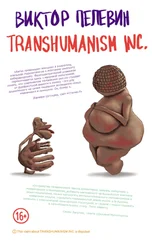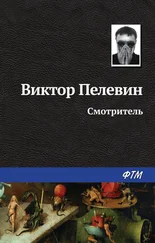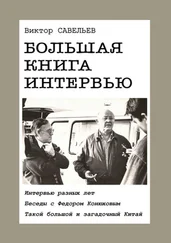Виктор Пелевин - 46 интервью с Пелевиным. 46 интервью с писателем, который никогда не дает интервью
Здесь есть возможность читать онлайн «Виктор Пелевин - 46 интервью с Пелевиным. 46 интервью с писателем, который никогда не дает интервью» весь текст электронной книги совершенно бесплатно (целиком полную версию без сокращений). В некоторых случаях можно слушать аудио, скачать через торрент в формате fb2 и присутствует краткое содержание. Жанр: Публицистика, на русском языке. Описание произведения, (предисловие) а так же отзывы посетителей доступны на портале библиотеки ЛибКат.
- Название:46 интервью с Пелевиным. 46 интервью с писателем, который никогда не дает интервью
- Автор:
- Жанр:
- Год:неизвестен
- ISBN:нет данных
- Рейтинг книги:5 / 5. Голосов: 1
-
Избранное:Добавить в избранное
- Отзывы:
-
Ваша оценка:
- 100
- 1
- 2
- 3
- 4
- 5
46 интервью с Пелевиным. 46 интервью с писателем, который никогда не дает интервью: краткое содержание, описание и аннотация
Предлагаем к чтению аннотацию, описание, краткое содержание или предисловие (зависит от того, что написал сам автор книги «46 интервью с Пелевиным. 46 интервью с писателем, который никогда не дает интервью»). Если вы не нашли необходимую информацию о книге — напишите в комментариях, мы постараемся отыскать её.
46 интервью с Пелевиным. 46 интервью с писателем, который никогда не дает интервью — читать онлайн бесплатно полную книгу (весь текст) целиком
Ниже представлен текст книги, разбитый по страницам. Система сохранения места последней прочитанной страницы, позволяет с удобством читать онлайн бесплатно книгу «46 интервью с Пелевиным. 46 интервью с писателем, который никогда не дает интервью», без необходимости каждый раз заново искать на чём Вы остановились. Поставьте закладку, и сможете в любой момент перейти на страницу, на которой закончили чтение.
Интервал:
Закладка:
In his own country, at least, Pelevin never gives interviews and refuses to be photographed or appear on television or radio. Very few people even know what he looks like. What he desires most — or so he claims — is to be ignored, to be left alone in peace to write and dream. ’’Part of the attraction of Buddhism for me is that it enables me to empty my head of all the junk of modern living,’’ he says. ’’I really hate all the attention. It’s harmful to me and stops me from getting on with my work. I can only begin writing again once I know that people have forgotten about me.’’
Such willed withdrawal from the ephemera of celebrity culture to which Russia is as much attached as any country in the West has, naturally, only increased Pelevin’s allure. Who is this reclusive Buddhist in the dark glasses who writes such strange, penetrating novels? Is he for real? Russian Vogue was so eager to secure an interview with Pelevin this past summer that a senior editor invited him out for lunch and then secretly recorded their entire conversation. She confessed her subterfuge only at the end of their lunch. ’’By then,’’ Pelevin says: ’’I was too drunk to care.’’ As for the ever-present dark glasses, he says, ’’I’m naturally shy. I hate physical attention. It’s torture. I’m wearing these sunglasses now while I’m talking to you and in pictures because it’s the only way I can be photographed without being photographed, if you see what I mean.’’
Pelevin and I are chatting in a sushi bar on the old Arbat, the main tourist drag of the city. After a late summer heat wave during which temperatures climbed uncharacteristically into the low 90’s, the severe cold has returned. The extremity of the weather finds an echo in the extremity of life in the city itself: there is war in the Caucasus, unease on the streets after a terrorist bombing campaign and gossip about the ailing Yeltsin giving way to Putin, a former K.G.B. hardliner, a succession that would take place, symbolically, on the very last day of the old century. The new Moscow seems to be passing inexorably through its Weimar phase — it is an intoxicating, dangerous place, where taxes and wages go mostly unpaid, where citizens openly drive stolen cars and where voracious prostitutes, their lips swelled by collagen injections, patrol the corridors of the international hotels.
Pelevin remains at once exhilarated and repelled by this near-anarchy. In September, he packed up again, first staying two months in Germany before moving on to South Korea, where he planned ’’to avoid the millennium hype’’ by spending the winter months deep in meditation among the Buddhist monks. ’’When I’m away in Korea, spending all day meditating, everything in the world seems to disappear into silence,’’ he says. ’’I stop smoking, I’m disciplined and I can concentrate on what’s important. Living in Russia drains you if you’re an intelligent person. We have no civil society, and people have no protection from corrupt rule. Ordinary people are much worse off than they were under Communism; you simply cannot survive on your pension or money from the state.’’ Pelevin himself is fortunate; he now earns around $50,000 a year from his writing, making him wealthy by typical Russian standards — and allowing him to escape the country for months at a time.
Unusually for a Russian writer, he did not grow up surrounded by writers, intellectuals and dissidents. His parents were part of the old-style Soviet nomenklatura: his father was a military officer, and his mother was an economist from the Russian enclave of the former Soviet republic of Kazakhstan. He remembers the long summers of his boyhood being spent happily on a Moscow army base. ’’I really loved the place, actually,’’ he recalls. ’’It was like a big playground full of soldiers, a great place to excite the imagination.’’
Memories from this period informed his first novel, ’’Omon Ra’’ (1993), set during the long stagnation of the Brezhnev years. As a child, Omon is fascinated by flight and deep space and dreams of becoming a cosmonaut, a heroic Soviet man in the model of Yuri Gagarin. In his late teens, he enrolls as a cadet at the Zaraisk flying school and begins a grueling training program. His aptitude and diligence impress the authorities, and soon he is selected to be the sole pilot on a one-way, supposedly ’’unmanned’’ mission to the dark side of the moon. Omon realizes that such a journey means certain death, his death, but he has no choice and sets off for the moon only to discover, at the end of the novel, that his ship never really left the ground, that the entire Soviet space program is an elaborately choreographed fake. Pelevin’s satire, written in the immediate aftermath of Communism’s fall and scornful of the heroic bombast of the past, had all the daring and swaggering hauteur of a young man’s debut. Richard Bernstein, writing in The Times in 1996, praised ’’Ra’’ as ’’wicked, clever and poetic.’’
Pelevin, who studied engineering at the Moscow Institute of Power Engineering, did not begin writing fiction until his mid-20’s, and he was slow to find a readership. After college he worked as a journalist and in advertising as a copywriter (echoes of ’’Generation P’’). He wrote stories in stolen moments. That ’’Omon Ra’’ was published at all owed everything to the acuity of Natasha Perova, who read one of Pelevin’s first published stories, ’’The Blue Lantern,’’ and was excited to see more. ’’When we met up he handed me the manuscript of ’Omon Ra,’’’ she told me. ’’I could see immediately that here was a born writer with his own voice and natural style.’’
’’The Blue Lantern’’ is a magical evocation of childhood wonder. A group of boys at a summer camp spend the night wondering if their lives are but a dream and the world around them a chimera. Perhaps they are even dead, no more than lingering, evanescent spirits. Perhaps they never lived at all. As with much of Pelevin’s early fiction, the story ends on a note of heightened transcendence, with one of the boys lost in a kind of rapture as he peers at the blue lantern burning outside his window, his consciousness teetering on the edge of dissolution, on the very edge of silence. Pelevin’s longing to find moments of repose like this — to elevate himself beyond the white noise of his daily life — may have inspired his interest in Zen Buddhism. Even when he is in Moscow, he spends many hours each week in deep meditation. And his fiction certainly has a hazy, hallucinogenic quality, as if following the trajectory of a drug trip: luminous, allusive, utterly illogical.
While he is in Moscow, his young female fans would be surprised to discover, he still lives with his aged mother. (He kept me away from his apartment, possibly sharing the embarrassment many Muscovites feel about living in cramped high-rise blocks.) His mother leaves him in peace, he explains, and if ’’I know where she is, I don’t have to worry about her all the time.’’ Pelevin has a longstanding girlfriend, Nina, who works in advertising and wants to marry him, but he remains stalled by indecision. ’’Do you think I should get married?’’ he asked me, glancing at my wedding ring. ’’Well, if you love Nina, why not?’’ I said.
’’It’s not such a good idea bringing up children in a country like Russia, and, anyway, I go away so often.’’
’’What does Nina think about that?’’
’’She thinks I’m a fool.’’
How serious, then, is Victor Pelevin? Having spent time with him in Moscow and London, I would venture that there is something genuine in his retreat from fashionable society, in his search for silence amid the clumsy clamor of contemporary life. At the same time, he seems to derive a perverse pleasure from the aura of intrigue that surrounds him. A Buddhist ascetic who enjoys some of the worst excesses of consumer society (Cohiba cigars, late-night partying); a semi-recluse who eagerly engages with and chronicles contemporary life; an author who despises the Russian literati yet welcomes the attention of foreign journalists. Even his dark glasses simultaneously deflect and command attention.
Читать дальшеИнтервал:
Закладка:
Похожие книги на «46 интервью с Пелевиным. 46 интервью с писателем, который никогда не дает интервью»
Представляем Вашему вниманию похожие книги на «46 интервью с Пелевиным. 46 интервью с писателем, который никогда не дает интервью» списком для выбора. Мы отобрали схожую по названию и смыслу литературу в надежде предоставить читателям больше вариантов отыскать новые, интересные, ещё непрочитанные произведения.
Обсуждение, отзывы о книге «46 интервью с Пелевиным. 46 интервью с писателем, который никогда не дает интервью» и просто собственные мнения читателей. Оставьте ваши комментарии, напишите, что Вы думаете о произведении, его смысле или главных героях. Укажите что конкретно понравилось, а что нет, и почему Вы так считаете.
